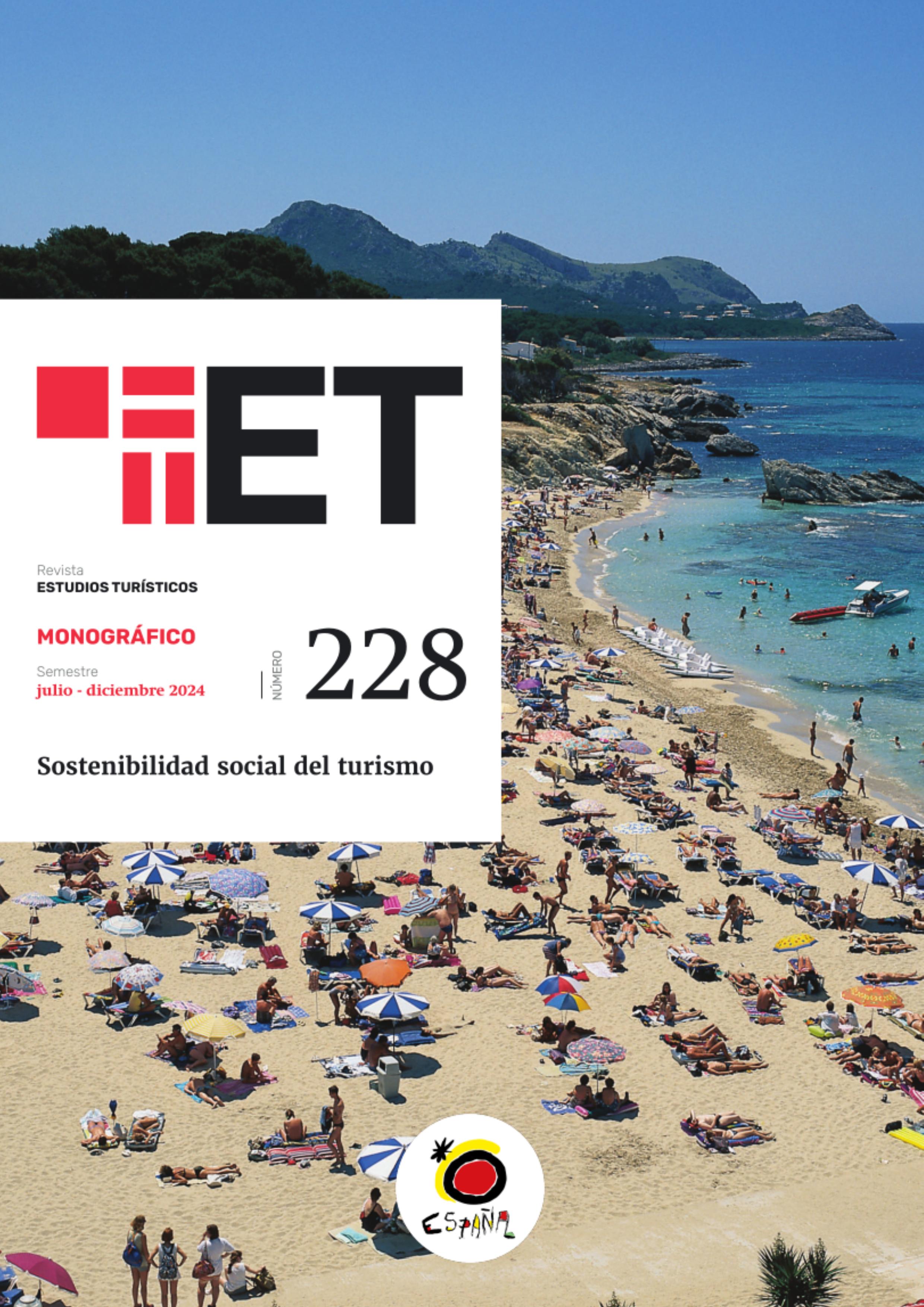El debilitamiento del turismo social como política pública en Uruguay
Article Sidebar

This work is licensed under a Creative Commons Attribution-NonCommercial-ShareAlike 4.0 International License.
Main Article Content
to leisure activities is part of human rights. Social tourism has historically become a recognized component and a legitimate objective as a field of action of public tourism policy. Its objectives at individual and collective level are in line with guaranteeing higher levels of justice, more dignity and a better enjoyment of life for all citizens; thus contributing to the social sustainability of tourism, a fundamental pillar of sustainable development. However, the desire of conservative elements of society to reduce the degree of government intervention in economic and private life and to give priority to individual interests over the needs of the collective has often led to a significant decrease in support for social tourism worldwide in recent times (Hall, 2009). In Uruguay, the first precedents that determine the rest of workers are found early on, through Law 5350 of November 17, 1915, which establishes eight hours of daily work and weekly rest. In addition, Law 10684 of January 2, 1946 provides for paid vacations for employees of the private industry and Law 12590 of December 23, 1558 provides for the payment of annual leave. With the arrival of the first left-wing
government in 2005, a social tourism policy was implemented as the government’s flagship in terms of tourism. The National Social Tourism System was created and implemented for fifteen years. This policy was first reduced (in the context of the pandemic) and later closed. As described, the research aims to analyze the social tourism policies promoted by the governments of Uruguay, aimed at offering vacations to those vulnerable groups, as well as their weakening.
Article Details
Adenda de Bruselas: por la sostenibilidad social del turismo. (2023) https://isto.international/wp-content/uploads/2023/12/ISTO_Addendum_ES.pdf
Bramwell, B. (2006). Actors, networks and tourism policies. In Tourism Management Dynamics (pp. 155-163). Routledge.
Bramwell, B., & Meyer, D. (2007). Power and tourism policy relations in transition. Annals of tourism research, 34(3), 766-788. https://doi.org/10.1016/j.annals.2007.03.009
Burns, P. M., & Novelli, M. (Eds.). (2007). Tourism and politics. Routledge.
Da Cunha, N., Campodónico, R., Maronna, M., Duffau, N., & Buere, G. (2012) .Visite Uruguay: del balneario al país turístico (1930-1955), Ediciones de la Banda Oriental, Montevideo.
Dredge, D., & Jenkins, J. (Eds.). (2011). Stories of practice: Tourism policy and planning. Ashgate Publishing, Ltd.
Haulot, A. (1991). Turismo social. Trillas.
Hall, C. M., & Jenkins, J. (2004). Tourism and public policy. En A companion to tourism, (pp. 523-540). Blackwell Publishing Ltd.
Hall, C. M. (2009). El turismo como ciencia social de la movilidad. Síntesis
Murphy, P. (1985). Tourism: A Community Approach (RLE Tourism) [1st ed.]). Routledge. https://doi.org/10.4324/9780203068533
Oficina de Planeamiento y Presupuesto del Uruguay. (2018). Evaluaciones de Diseño, Implementación y Desempeño (DID). Una herramienta para la mejora continua de los servicios públicos. Sistema Nacional de Turismo Social (SNTS). https://transparenciapresupuestaria.opp.gub.uy/sites/default/files/evaluacion/Sistema%20Nacional%20de%20Turismo%20Social.pdf
Pimentel, M. P. C. (2014). Uma discussão teórico-metodológica para a análise das políticas de turismo no Brasil. En T. D. Pimentel, M. L. Emmendoerfer, & E. L. Tomazzoni (Orgs.), EL Gestão Pública do Turismo no Brasil: teorias, metodologias e aplicações. (pp. 317-331). Caxias do Sul, RS. https://doi.org/10.1590/1982-7849rac20141968
Quintana, C. (2016). Política pública de turismo en Uruguay (1986-2010). PASOS Revista de Turismo y Patrimonio Cultural, 14(3).. https://doi.org/10.25145/j.pasos.2016.14.047
Registro Nacional de Leyes y Decretos:- Tomo: 1 Semestre: 1 Año: 1986 Página: 29 https://www.impo.com.uy/bases/leyes/15800-1986
Registro Nacional de Leyes y Decretos: Tomo: 1 Semestre: 0 Año: 1945 Página: 1135 https://www.impo.com.uy/bases/leyes/10684-1945
Registro Nacional de Leyes y Decretos: Tomo: 1 Semestre: 0 Año: 1958 Página: 1428 https://www.impo.com.uy/bases/leyes/12590-1958
Registro Nacional de Leyes y Decretos:Tomo: 2 Semestre: 0 Año: 1950 Página: 1281 https://www.impo.com.uy/bases/leyes/11618-1950
Registro Nacional de Leyes y Decretos: Tomo: 1 Semestre: 1 Año: 1986 Página: 29 https://www.impo.com.uy/bases/leyes/15800-1986
Schenkel, E. (2019). Turismo Social en América Latina: Aprendizajes de las experiencias regionales. Alba Sud. https://www.albasud.org/publ/docs/91.ca.pdf
Scott, N. (2011). Tourism and Policy. Goodfellow Publishers Ltd.
Secchi, L. (2014). Políticas públicas: conceitos, esquemas de análise, casos práticos. Cengage Learning.
Subirats, J., Knoepfel, P., Larrue, C., & Varone, F. (2012). Análisis y gestión de políticas públicas.
Velasco, M. (2005). ¿Existe la política turística? La acción. Política y sociedad, 42(1), 169-195. https://
revistas.ucm.es/index.php/POSO/article/view/POSO0505130169A
Velasco, M. (2011). La política turística. Una arena de acción autónoma. Cuadernos de turismo, (27), 953-969. Recuperado a partir de https://revistas.um.es/turismo/article/view/140301
Velasco, M. (2016). Entre el poder y la racionalidad: gobierno del turismo, política turística, planificación turística y gestión pública del turismo. PASOS
Revista de Turismo y Patrimonio Cultural, 14(3), 577-594. https://doi.org/10.25145/j.pasos.2016.14.038
WEBGRAFIA
https://bitsamericas.wordpress.com
https://www.isto.international
https://lacallepou.uy/descargas/programa-de-gobierno.pdf
https://www.albasud.org/blog/es/1130/uruguay-sistema-nacional-de-turismo-social

